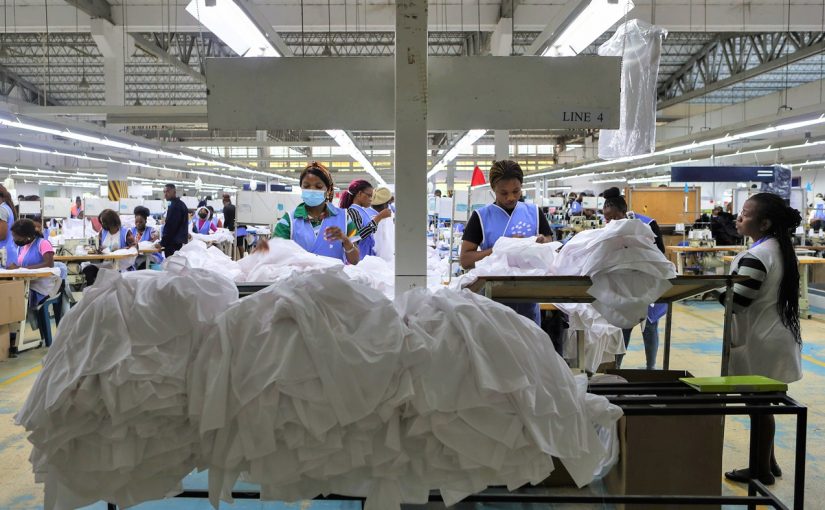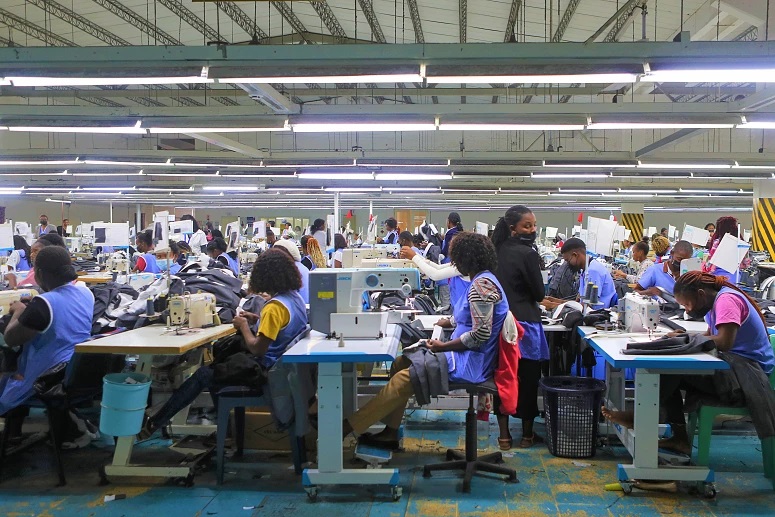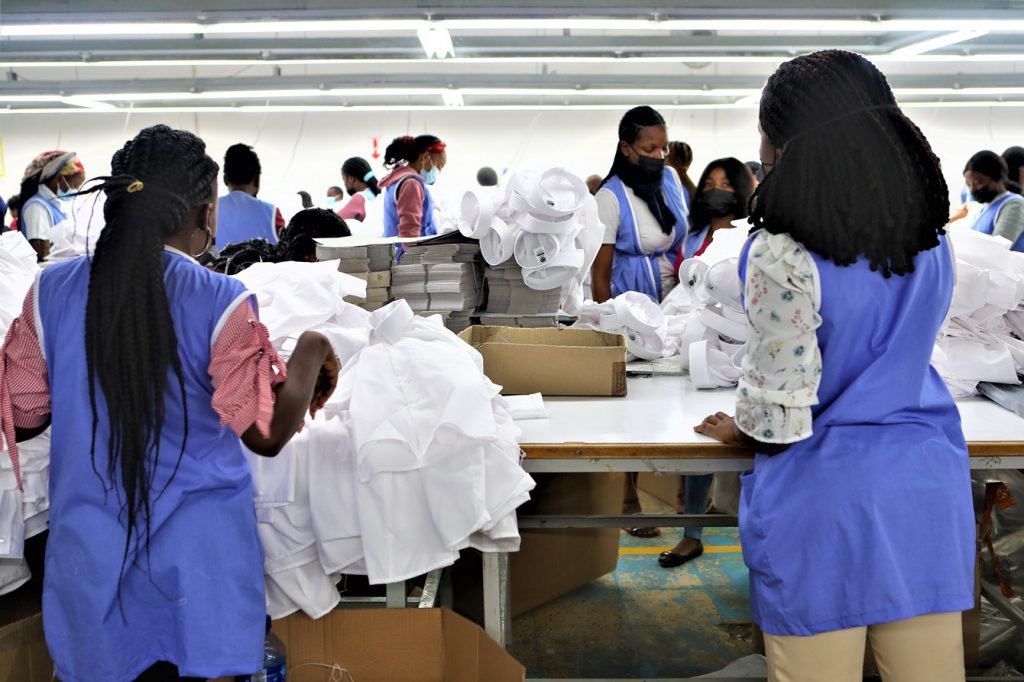Mozambique: President blames banks for shortage of foreign currency
Mozambique: Aga Khan network hopes to revitalise textile giant – Photos

MozTex Textiles, an investment by the Aga Khan Network, which has been seeking for 15 years to revitalize the textile industry in Mozambique, a sector in which the country was once the “giant” in southern Africa, Maputo, Mozambique, July 26, 2024. It has been 15 years since the start of operations at MozTex, a factory rebuilt on the ruins of the former Texlom, which was the largest textile company in Mozambique and one of the references in the area in southern Africa, located in Matola, on the outskirts of the Mozambican capital [Photo: Luisa Nhantumbo/Lusa]
The MozTex company, an investment by the Aga Khan Development Network (AKDN), has been trying for 15 years to revitalise the textile industry in Mozambique, a sector in which the country was once a ‘giant’ in southern Africa.
‘We received an appeal, at the State level, for the Aga Khan Fund for Economic Development (AKFED) to replicate our experience in this sector in Kenya in Mozambique (…) This is a long-term investment project,’ explained Rui Carimo, Aga Khan Development Network (AKDN) Mozambique Representative Adjunct, in an interview with Lusa.
It’s been 15 years since MozTex began operations, a factory rebuilt over the ruins of the former TEXLOM, which was the largest textile company in Mozambique and one of the benchmarks in the area in southern Africa, located in Matola, on the outskirts of the Mozambican capital.


Texlom was dedicated to producing textiles for the domestic market and for the former socialist bloc of Eastern Europe, with which Mozambique had maintained close relations since the liberation struggle. However, Texlom collapsed, and the infrastructure deteriorated for almost ten years.
‘The first investment to be made [to set up MozTex] was rehabilitating the infrastructure. In the first 12 years, the factory gave us negative results,’ said Rui Carimo.
1,300 workers, all trained by the company
The Aga Khan Network invested more than six million dollars to rebuild the Texlom factory, but the main challenge was always the labour force, which had to be trained.
‘We had to train people, and that paid off. Today, We can see a labour force of 1,300 employees, all trained by the company,’ said Rui Carimo.
Among the 1,300 people trained in this project is Carla António, who joined the company as a simple employee but is now a team leader.
‘I was trained in 2009 by Moztex and trained to train other people (…) It’s difficult to train other people because we don’t have that market here in Mozambique. People come here without knowing how to thread a needle,’ Carla António told Lusa.
Like Carla António, hundreds of women—the majority of the company’s employees—are trained after being hired, some of whom now have personal projects to increase their income outside the factory.
‘I didn’t know anything when I joined, but the company allowed me to learn. Today I even have my own machine at home and do some work. I didn’t go to school, but I learnt a trade here,’ Celeste Alexandre, another MozTex employee, told Lusa.

With a presence on the international market today, MozTex produces 5.8 million garments annually, exported mainly to South Africa.
‘Our production has been increasing year on year. From 2022 to 2023, for example, we produced an additional 1.5 million garments, totalling 5.8 million garments, all exported to South Africa,’ concluded the Aga Khan Development Network’s deputy diplomatic representative.













Leave a Reply
Be the First to Comment!
You must be logged in to post a comment.
You must be logged in to post a comment.